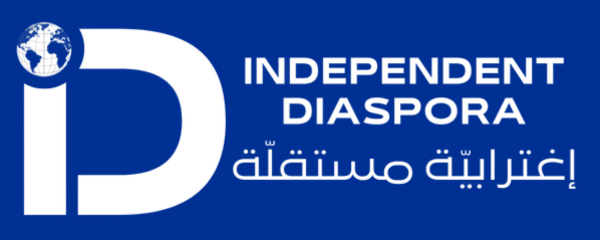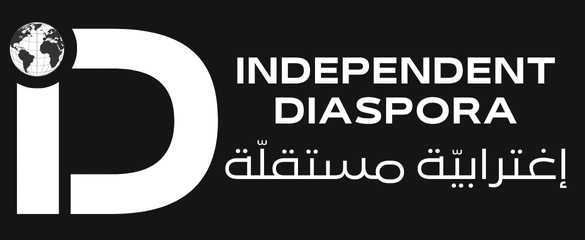 Sergio Jalil
Sergio Jalil
Buenos Aires
Chair of the Board of the Global Lebanese Alliance. Founder and Executive Director of the Center for Lebanese Studies in Latin America. Board member of Lebanon and Beyond. Member of the Argentine Academy of Sciences of Communications. Professor of Middle East History of International Relations at Salamanca University (Spain). Four decades of active engagement in Lebanese Diaspora organizations.
When I was approached to write a column for this organization, I was immediately drawn by its name: Independent Lebanese Diaspora. I thought I would simply share my reflections on the meaning of the words contained in this title.
“Independent” is a powerful and commonly used word, yet not always truly achieved or enjoyed in practice. Being independent means having free will and the unhindered ability to make uncompromised decisions. It implies not being coerced or intimidated by external pressures and being capable of resisting extortion and bullying.
An independent person can choose a political party or ideology according to their own conscience, self-awareness, and convictions, as opposed to being compelled or pressured to join a party or vote under intimidation.
The word Diaspora refers to the dispersion of a people who, for various reasons, have left their homeland and scattered across the globe. But leaving does not imply abandonment or disconnection, nor does it reduce the sense of belonging and pride in being a guardian of one’s identity.
A citizen is bound by allegiance to the nation, but their identity and sense of belonging are also deeply associated with the town, village, or region of origin. This is a primordial bond and an indelible link that endures across time and distance.
Being Lebanese is a shared identity and destiny, and the deeply rooted ties to one’s place of origin are an essential part of one’s nature and defining character. No wonder that when two Lebanese meet for the first time, the question “Where are you from in Lebanon?” is always a fundamental part of the introduction.
Being a member of the Lebanese Diaspora does not diminish the inalienable right to citizenship guaranteed by the Constitution, nor does it imply a fading interest or concern for the present and future of Lebanon or one’s town or village of origin. Therefore, emigrants cannot be alienated as rightful political actors in the electoral process of the districts from which their Lebanese connection emanates.
The Lebanese Diaspora enjoys independence and acts freely according to its aspirations, judgment, and the appeal of political choices. However, in Lebanon, nepotism, family traditions, mafia-like structures, corruption, coercion through militia power, clientelism, and the often-misguided sense of sectarian belonging—beyond the concept of national citizenship—remain prevalent and rampant.
All these practices limit and endanger personal independence, undermining the natural individual freedom that every human being deserves. This is one of the reasons why progress in Lebanon is difficult, leading to widespread disengagement and apathy among many citizens during elections—a manifestation of disillusionment.
If genuine independent free will were to flourish, positive development would be far more conceivable, and political participation more enthusiastic and productive.
The expression “independent” is also commonly applied to countries. Independent states have full control over their sovereignty and governmental decision-making. External pressures and interferences are common and expected, especially when referring to a small country like Lebanon, which is not militarily powerful and has historically sought to uphold neutrality since its inception as an independent state.
But the constant challenges to, and disregard for, that independence have led to a loss of trust, a degradation of citizenship values, a weakening of internal cohesion, and a decline in international standing.
The problem in Lebanon is that the state does not have full and absolute control over its sovereign territory due to the presence of an external occupying force and an internal militia entity that has hijacked independence. This militia refuses to recognize or respect the supremacy of the state by failing to disarm, acting instead for its own political survival. Its behavior is tied to domestic power calculations—including coercion within and beyond its political base—and, more disturbingly, to clear allegiance to the interests of a foreign state for which it acts as an agent.
The Lebanese Diaspora is highly valued in Lebanon for its commitment to the homeland, its success at all levels as individuals, and its invaluable economic support. Lebanon must also appreciate its Diaspora for its cultural achievements, managerial abilities, and vast knowledge and experience gained from living under diverse political and economic systems—and, in many cases, from serving in government roles around the world.
The political acumen of the Lebanese Diaspora is an invaluable asset that Lebanon must treasure. Its participation in elections should be encouraged, facilitated, and strengthened. Any attempt to deny, minimize, or thwart the legitimate right of Diaspora citizens to elect members of parliament in the districts of their origin is not only illegal but also an affront to the interests of the State, the prosperity of its regions, and the identity of the Nation.
Lebanon must reclaim its sovereign independence by asserting the absolute and uncontested control of the Lebanese Armed Forces—under its democratically elected government—throughout all its territory. Lebanese citizens within the country must also reclaim their political independence as individuals and engage willingly and eagerly in the electoral process. Only individual freedom can guarantee this independence.
The activism, strong presence, and continued participation of the Independent Lebanese Diaspora are instrumental. It must play a key and decisive role in Lebanon’s future, acting as an irreplaceable force for Lebanon and its people to become truly independent and free.

Sergio Jalil

